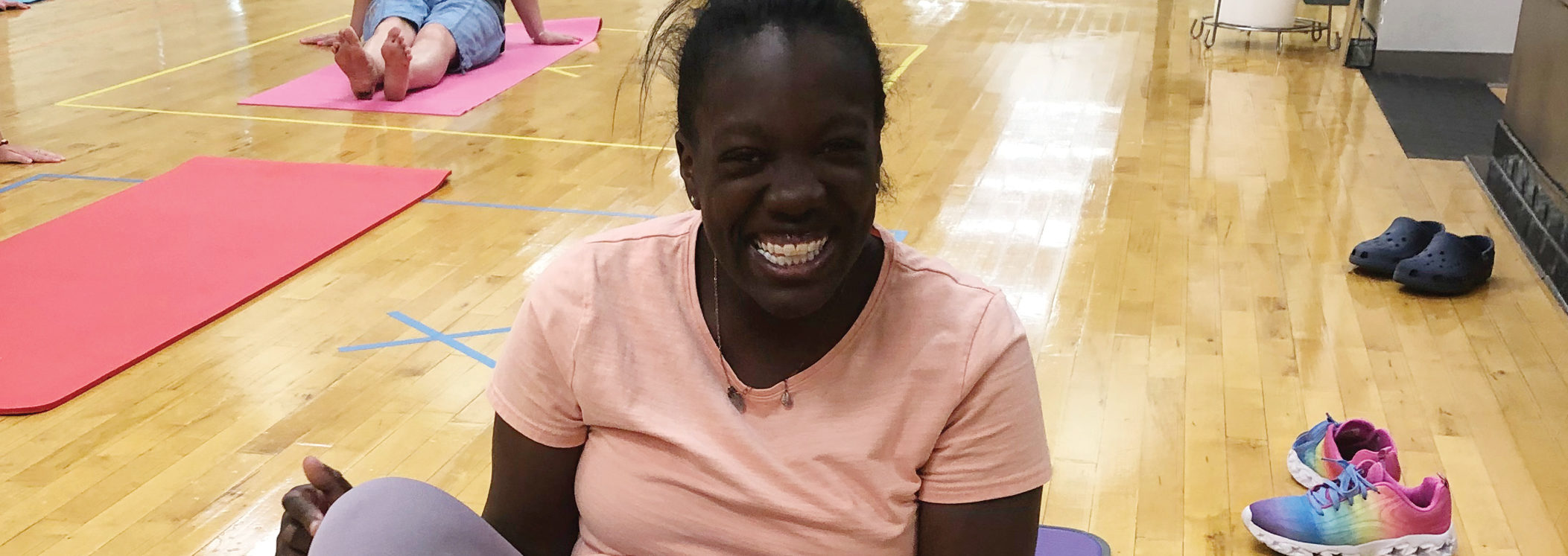Inclusion at Every Age
Safe, nurturing environment supports adaptive participants.
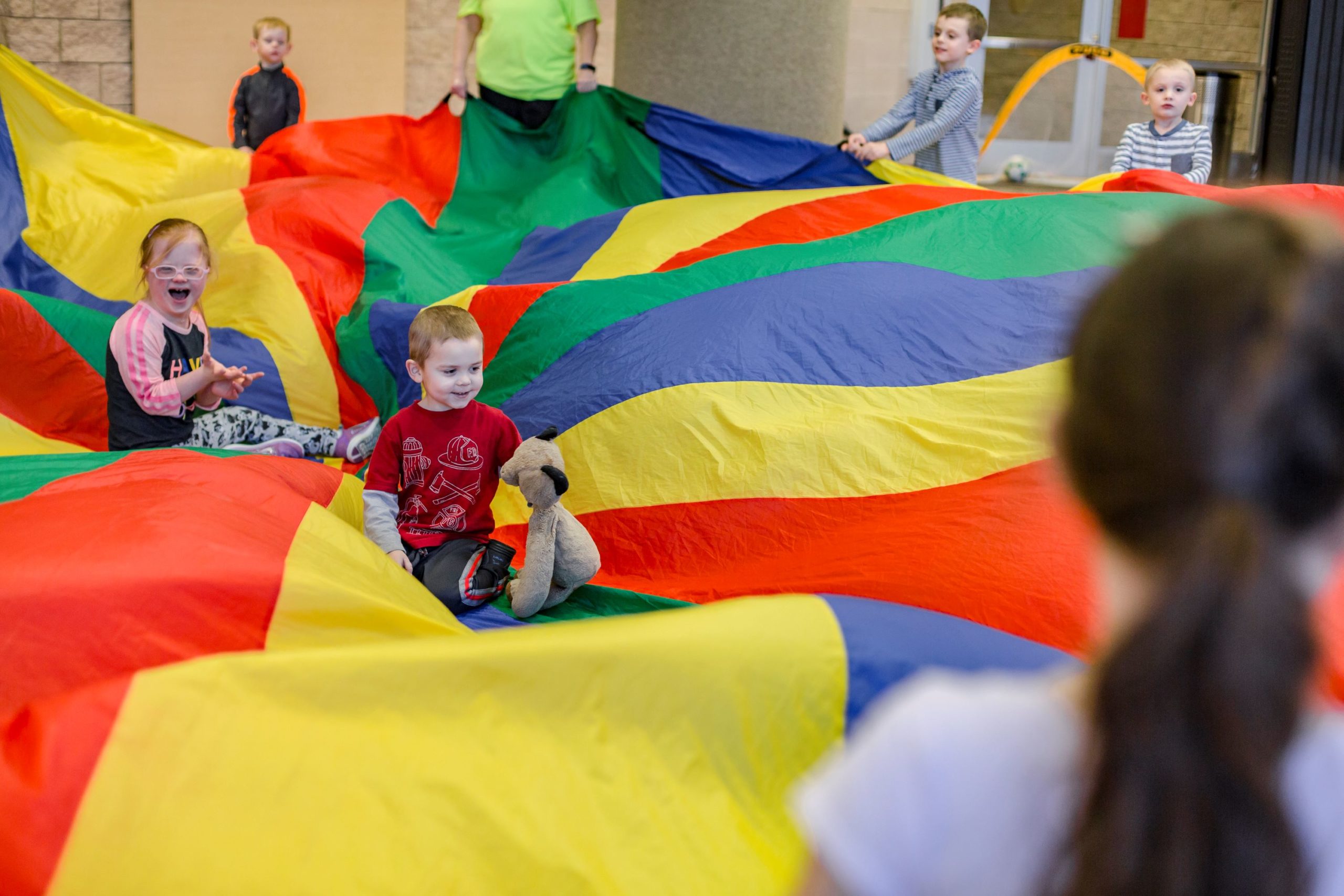
“Our over-arching goal,” says Michelle Yadon, recreation program manager for Carmel Clay Parks & Recreation, “is inclusion. We want to enable our adaptive participants to be included in their neighborhoods, connecting with friends and family on many levels.”
That is a tall order, but one Yadon and her staff take to heart, from the youngest, 2-year-old participants in their pre-school programming to their adult group.
Since opening its doors in in 2007, Carmel Clay Parks & Recreation has earned praise and recognition for its adaptive programming, including the National Recreation and Park Association “Excellence in Inclusion Award.” The award applauds CCPR’s efforts in implementing inclusive processes and practices and providing well-planned supports for inclusive participation by people with disabilities and diversity in all programs, services, and facilities.
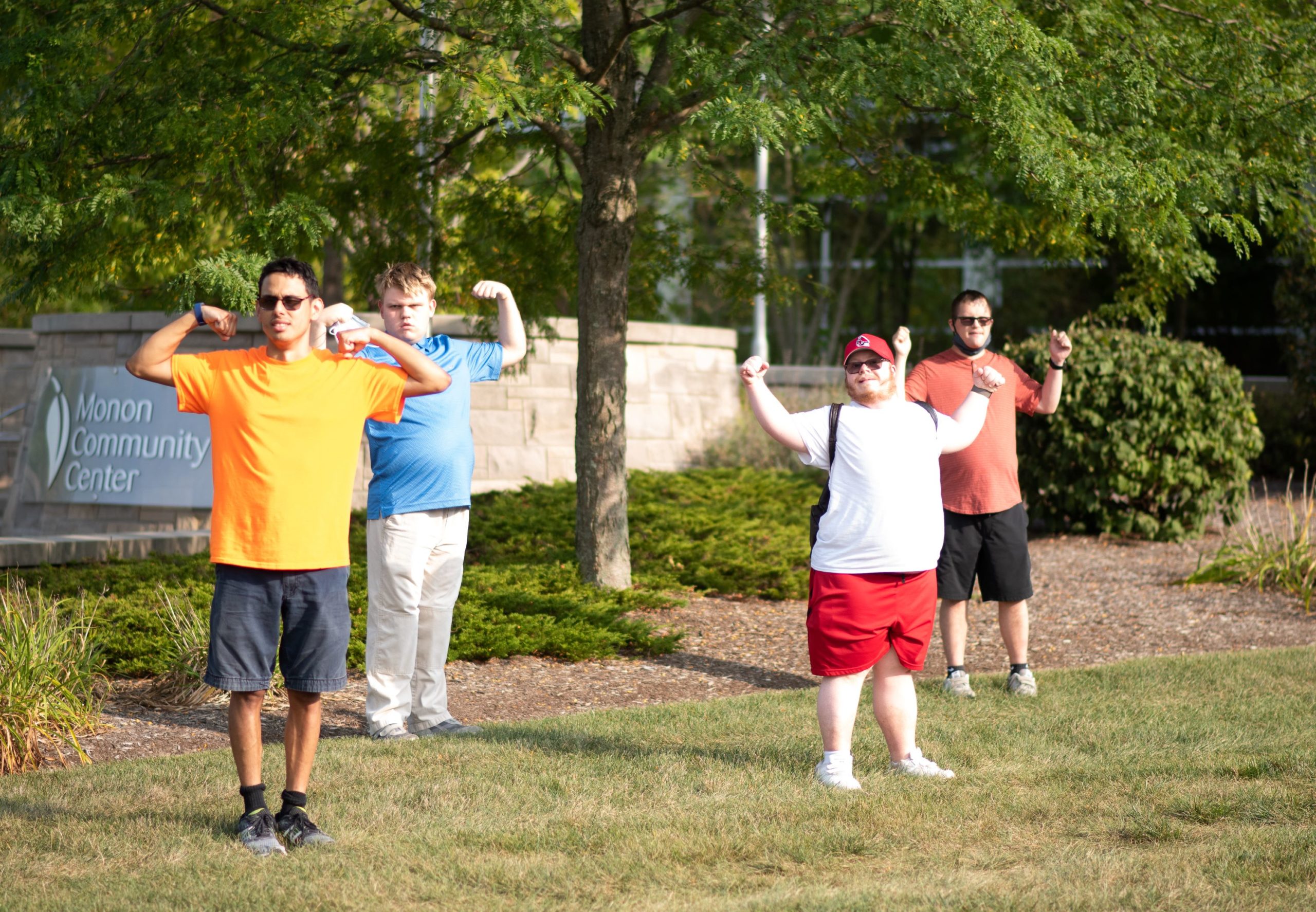
The programming for each age group has a specific focus. The programming for adults is goal based while the programming for teens is a social- and fitness-based approach. Youngsters ages six to 12-years old experience skills-based programming.
“Right before the pandemic, we had some great success with these youth programs, specifically an eight-week bike riding course. It’s a difficult skill to master, and we wanted to support it in a way that enables children to be able to ride with their siblings and friends,” explains Yadon. “It was very individualized. One child worked on balance while another was learning to stop.” The physical results: Improved gross motor skills, core strength and hand-eye coordination; perhaps most importantly, these participants gained confidence, built friendships and learned how to support each other through the journey.
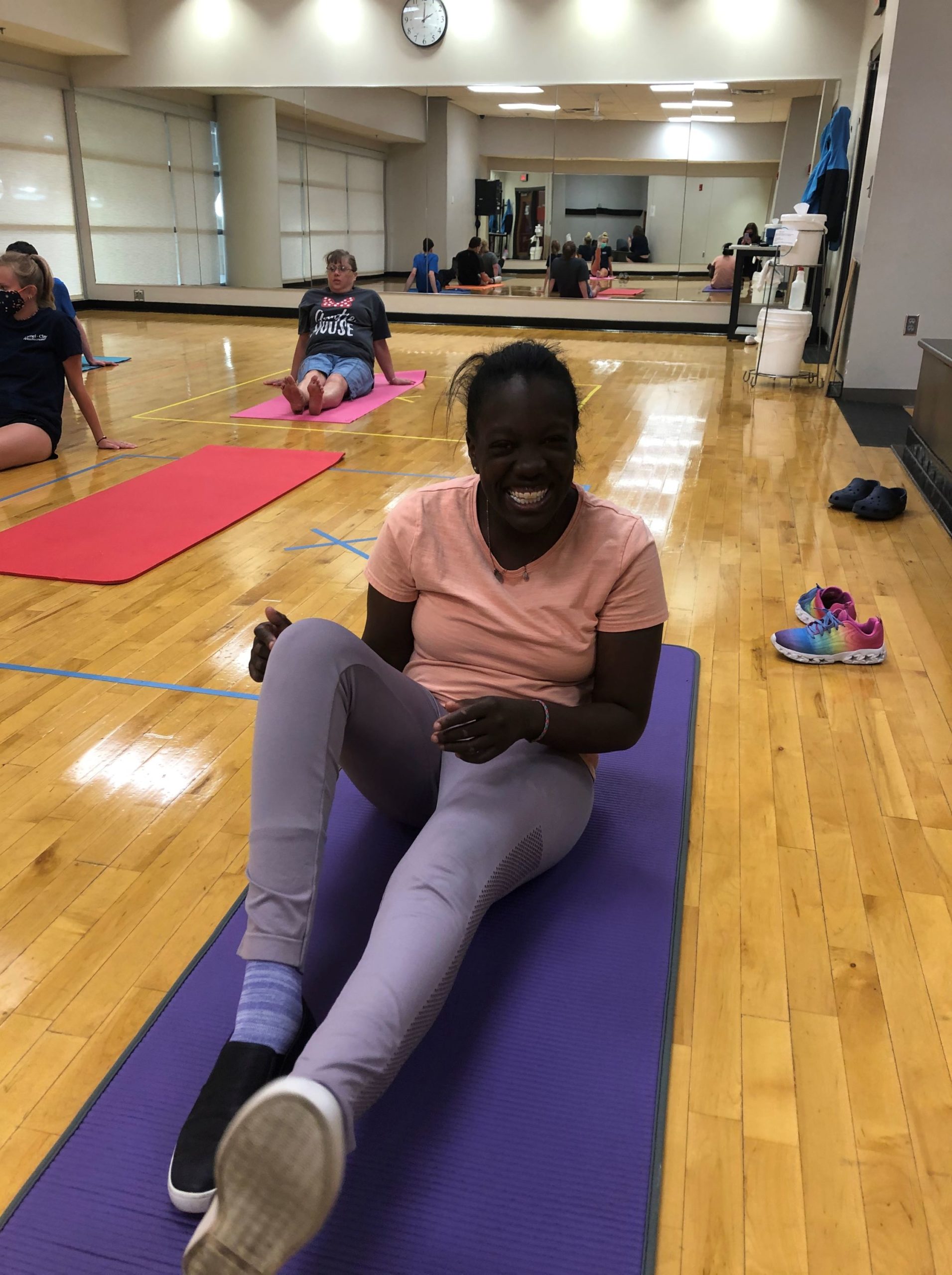
For younger pre-school (ages 2 – 5) participants, parents are perhaps more reticent to enroll children. “It’s understandable,” says Yadon. “For many of them, the diagnosis is relatively new, and they are just learning about programming and what is available.”
However, a sensory- based focus coupled with a caring and nurturing atmosphere reassures parents of the tangible benefits. Unlike the skills-based activities for the older children, the preschool programs are experiential in nature and more of a play-based group. Inclusion Supervisor Katie Smith explains, “We work hard to create a safe environment to support, develop and continue building skills.”
Smith and Yadon both urge parents to visit with them prior to the first day of the class, especially for the preschool group. “It’s really helpful for them to see the room and walk through a program,” says Yadon. “I really like to take them through the whole process, from the time they check in at the front desk, walking down the hall and coming into the room.” She says it’s often beneficial for parents to return with their child to go through the routine together. “That eases a lot of anxiety for both the parent and the child.”
Another anxiety-easing factor is a strong team of volunteers who work with adaptive programming, according to Jody Davis, a member services associate, adaptive advocate and a former kindergarten-through-fifth grade special education teacher. “Carmel Clay Parks has an outstanding volunteer group who comes in to lend extra one-on-one help,” she says. “Parents should know that the staff can provide peace of mind, and the children thrive with these programs.”
Even with the current concerns, the adaptive programs remain important for all ages, according to Smith.
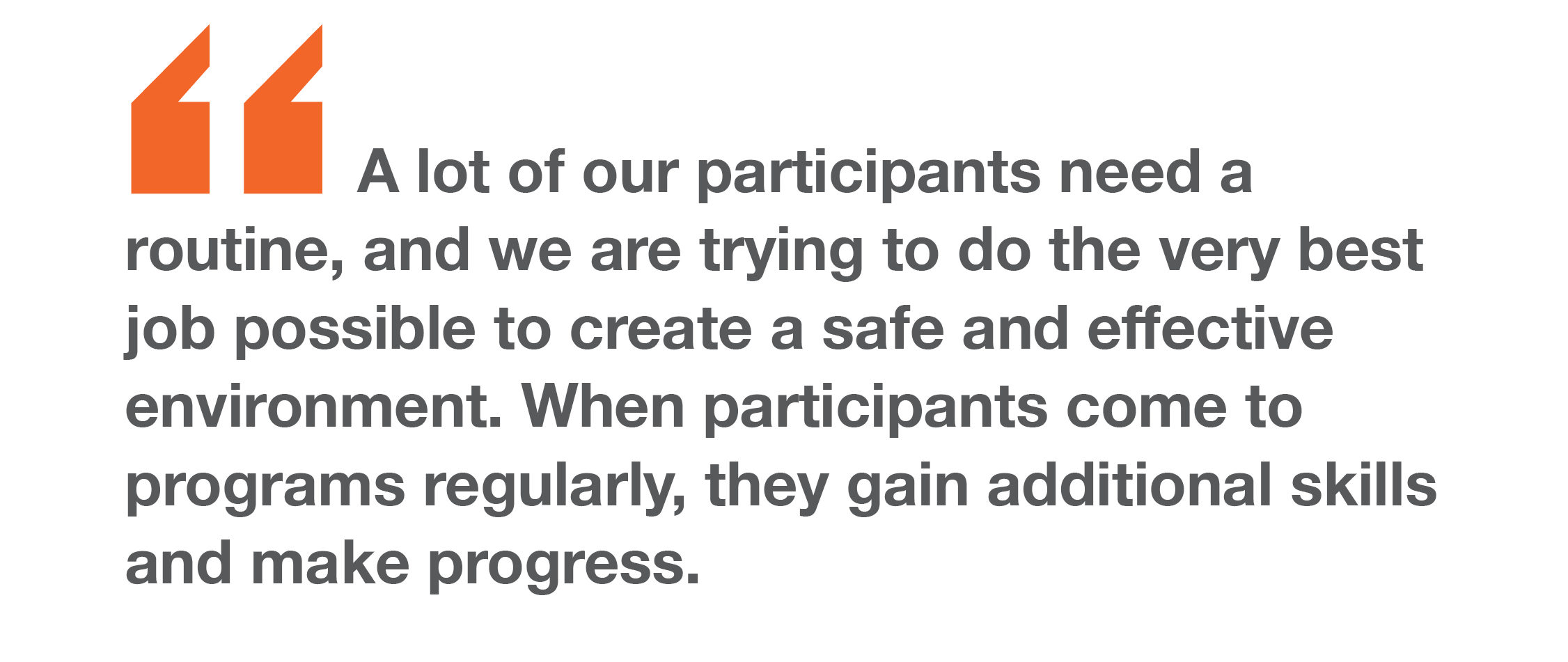 Smith encourages parents with questions about a specific program or the adaptive programming in general to contact her directly by email at ksmith@carmelclayparks.com or phone 317.573.5248. Click here for a listing of all adaptive programming.
Smith encourages parents with questions about a specific program or the adaptive programming in general to contact her directly by email at ksmith@carmelclayparks.com or phone 317.573.5248. Click here for a listing of all adaptive programming.
This story was written in partnership with Pickett & Associates.

